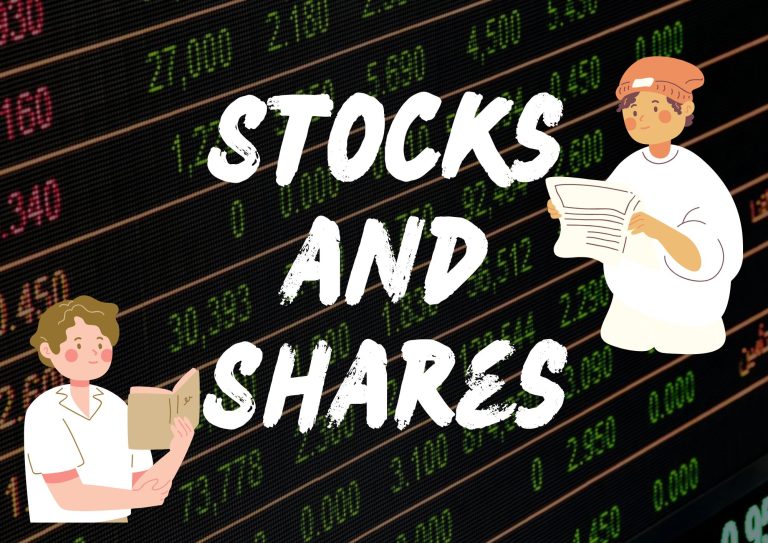Stocks are financial assets that provides stockholders with an ownership interest in a business organization. A share is one unit and the smallest denomination of a company’s stock. If you own shares in a limited company, you are a shareholder or member. When the shares are bundled into stocks, you become a stockholder.
Difference Between a Share and a Stock
If you’ve bought stocks in X, Y, and Z companies and I ask you about your investments, you can tell me that you invest in stocks. If I then asked you to tell me more about your investment in these stocks, you’d proudly say that you have shares in companies X, Y, and Z.
How do stocks work?
When a company decides, for instance, to expand on its operations, it has to look for the necessary funds and other resources. It can get the money through loans or by issuing bonds or by selling its shares. To get shares, the business divides the company into slices or fractions, called shares. These shares reflect the precise proportion of the stake that a holder owns in the company. This means the ownership and control of the company depend on the number of shares that you hold in the company.
For example:
– One issued share = 100% ownership of the company.
– 2 issued shares of equal value = 50% ownership per share.
– 10 issued shares of equal value = 10% ownership per share.
– 100 issued shares of equal value = 1% ownership per share.
You normally receive a percentage of trading profits that correlates with their percentage of ownership.
Going public and Initial Public Offers (IPOs)
Companies go public and offer an initial public offering (IPO) when they want to sell these shares. To go public is to offer company’s shares to the public where people other than the founders and other private investors can now buy the shares in the stock exchange market. An IPO is the price per share they expect people will be willing to pay.
You become a shareholder when you buy these shares. You now own a share in a company, thus becoming a shareholder and are entitled to a share of the company profits.
Stocks are an investment in a company and that company’s profits. As an investor or shareholder, you make money by trading these shares in the stock exchange market or by earning divideds (part of the company’s profit). Sometimes dividends will be paid in the form of additional shares. It may take you at least a year to make money through dividends.

How many shares can a company issue?
The minimum quantity of shares that a company can issue is one. This is common when you set up a limited company and you are the sole owner and director. But you can issue as many shares as you like, either during or after the incorporation process.
What is a shareholder?
Anyone who owns ‘shares’ in a company limited by shares is a shareholder. A company can have just one shareholder or many shareholders. Shareholders are commonly referred to as ‘ members’. A shareholder owns part of a company in relation to the proportion of shares they hold. Each one is entitled to receive a portion of profits in relation to the number and value of their shares.
Who can be a shareholder?
Any person or corporate body (company, firm, organization, etc.) can be a shareholder of a private company limited by shares. There is no maximum number of shareholders a company can have. However, at least one shareholder is required to incorporate a private company limited by shares.
What does a shareholder do?
Shareholders own shares in a company. They are not involved in managing or supervising operations on a daily basis. However, they can appoint a director to manage the operational activities of a company. In return for being a shareholder, you get a piece of the company profits (divided) based on the number and price of shares you own. One person can be the sole shareholder and sole director of a small company or start-up.
How do shareholders get paid?
They are paid through the declaration of a dividend to the shareholders. These dividends is how a company distributes or shares the profits it made with their shareholders. They are usually issued in the proportion of the shareholding of each member in the business. Dividends can be paid out in cash, or they can come in the form of additional shares.
How do you make money with stocks?
There are three primary ways:
1. The stocks appreciates
This means that people are willing to buy that stock for more money than you bought it for. When a company makes great decisions and makes a profit, more and more people will want to own their stock to make money with them. This drives the price high because of the increased demand. This is simple supply and demand.
Stocks can appreciate for any reason. Their value is tied to several factors that don’t always connected to how much money a company makes. For example, the price of a stock is more of a reflection of buyer sentiment or how good or bad people think the company will do. Stocks for companies that lose millions of dollars each year can go up in price if the market thinks that they will be more and more successful very soon.
2. Through dividends
Most stocks pay dividends. Dividends are payments directly from the company made to shareholders that come from the company’s profits. It’s as a way to entice people to buy a company’s stock and hold on to it and don’t sell it. A dividend is a set amount for each company for each share that you own. When you hold a company’s stock, the forces of supply and demand will mean that this will drive the price up over time. Companies want their stocks to go up so that the shares they still own are more valuable. These high share prices also mean that any shares they decide to sell or offer in the future can be sold for more money. This’ll generate more investment money for them.
3. Through trading in stocks
Companies offer their shares to the public through a process known as the floatation of the stock or an initial public offer, or IPO. Once a company’s stock is on the stock market, it can be bought and sold among investors. If you decide to buy a stock on the stock market, you’ll mostly buy it from an investor who wants to sell it, not directly from the company. Similarly, when you wish to sell a certain stock, you will sell it to another investor who intends to buy it.
Such transactions are carried out through a stock exchange market where a broker acts on behalf of an investor. Many investors these days use online stockbrokers, buying and selling stocks through the broker’s trading platform, which connects them to exchanges. You are required to have a brokerage account when you intend to buy the stocks.
Conclusion
You should also know the basic difference between share and stock, especially if you are a novice investor. Shares refer to the specific forms of ownership in a particular company, while stocks are broader as they cover several shares. By investing in stocks you become a part owner of a business and receive returns in the form of dividend or increase in the value of a company’s stocks. Companies offer their shares to be traded on the stock exchange through IPOs. Dividends are distributed to shareholders in accordance with the stock they hold whether the owner is an individual or an organization. You make money with stocks by the increase in stock price, through dividend income, and by buying and selling stocks through a broker account. By familiarizing yourself with these basics then it becomes easier to go through the world of investing.


